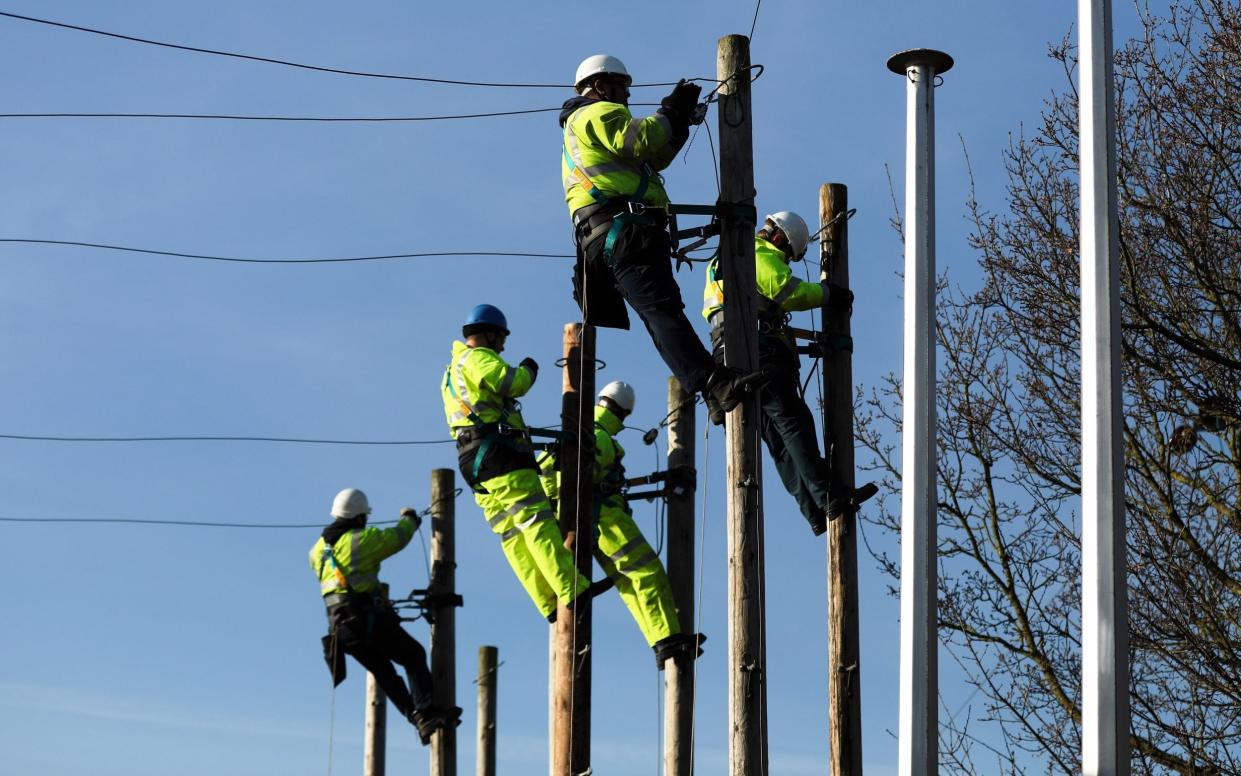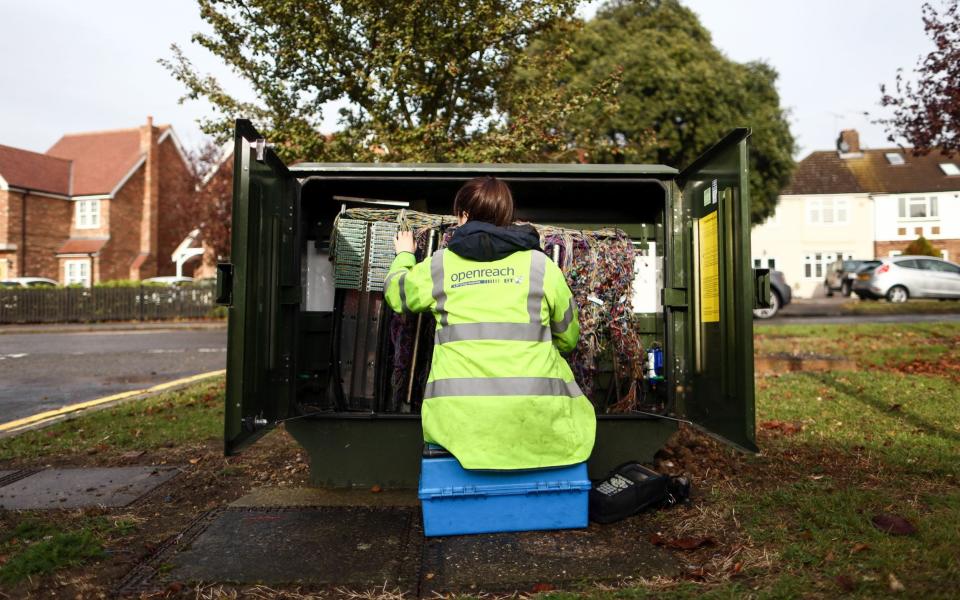BT workers to strike for first time since Thatcher privatisation

Tens of thousands of BT workers are to walk out in a national strike for the first time since being privatised under Margaret Thatcher following a row over pay.
Some 30,000 workers at Openreach and 9,000 call centre staff have voted to strike against what they described as an “unjust” and “unsustainable” wage deal.
However, a ballot of staff working at BT’s mobile subsidiary EE failed to reach the legal threshold of 50pc.
BT has offered staff an average pay rise of 5pc. Some of its lowest paid workers have been offered an increase of 8pc.
Dave Ward, general secretary of the Communication Workers Union (CWU), said that BT must table a “significantly improved” offer by next week or strike dates will be set.
He said: “Our members were never going to accept this imposition. BT Group thought they could get away with bullying treatment – they were wrong.”
A spokesman for BT said: “BT Group awarded its highest pay rise for frontline colleagues in more than 20 years.
“At the same time, we're in the middle of a once-in-a-generation investment programme to upgrade the country's broadband and mobile networks.
“These investments are vital for the benefit of our millions of customers and for the UK economy. Above all, they are central to the success of this business - and its colleagues - now and in the future.
“Our job is to balance the competing demands of BT Group's stakeholders and that requires careful management, especially in a challenging economic environment.”

The spectre of a mass walkout at BT comes little more than a week after the Rail, Maritime and Transport workers union (RMT) launched its biggest strike in a generation as union bosses vowed a "summer of discontent".
Hundreds of check-in and ground handling crew at British Airways have also voted in favour of strike action at Heathrow.
It is thought that the next wave of industrial action on the railways could coincide with a shutdown at airports.
Some 115,000 Royal Mail workers are currently being balloted for strike action.
Mr Ward said that BT had failed to recognise the hard work of staff during the pandemic.
He said: “Without CWU members working across BT Group, there would have been no home-working revolution.
“This work, which was done under great difficulty and often came with tremendous personal sacrifice, delivered £1.3 billion profits for the company.
“The reward for our members? The imposition of a below-inflation increase – the very same workers who delivered profits that were more like lottery numbers than actual wages.
“Our members, and working people in general, have had enough.
“We will not accept seeing workers use food banks while executives use Swiss banks. For too long now, corporate bosses have been rewarded for wrecking companies, chipping away at workers’ conditions so their rich mates get even richer.
“This situation is unjust, but it’s also untenable – people will not work harder and harder for less and less forever.”

 Yahoo Movies
Yahoo Movies 
